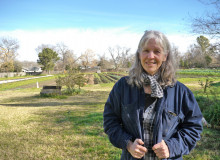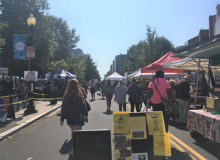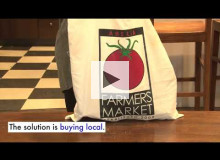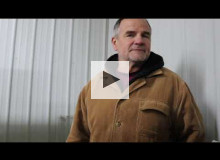eat local
Planet Forward Correspondent | Dartmouth College
Two Austin, Texas, urban farms led the way for their area's locavore movement. These farmers talk about their motivation, and discuss why eating local is so important.
Planet Forward Correspondent | Carleton College
When the idea for a reusable container program was pitched last fall, no one could have guessed that a year later, the campus would be overflowing with the green containers — or that we'd be in the middle of a pandemic.
Planet Forward Correspondent | George Washington University
Deemed essential services, D.C. farmers markets have remained open since the outbreak of the COVID-19 pandemic – but in order to keep vendors, staff and customers safe, markets have had to make sudden changes.
George Washington University
Farmers markets provide a healthier, more environmentally friendly alternative to commercially farmed food.
SUNY ESF
Indoor mushroom farms offer a local alternative to meat and imported mushrooms with high greenhouse gas emissions.
University of Wisconsin, Madison
A solution to the negative environmental impacts of shipping food around the world, such as carbon emissions, is to eat food naturally grown in a closer proximity to where you live.





